Graham Reid | | 4 min read
Jean Michel Jarre: Oxygene Pt 4
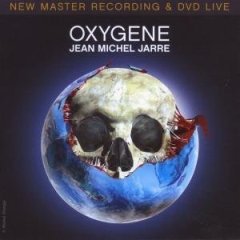
Sometimes in history there comes that rare conjunction of the artist, the time and the art.
In the case of Jean Michel Jarre it seemed they were all out of alignment. He could not have chosen a more inhospitable climate into which release his work. Jarre's album Oxygene came out in France in 1976 but wasn't given release in Britain until the following year.
It was the height of punk and most UK critics couldn't have hated it more.
At a time of short, sharp and angry songs full of phlegm and bile, here was a carefully crafted instrumental album of long and sometimes woozily drifting electronic pieces.
Jarre himself was a problem for the British music press swept up in the energy of punk: he was the son of a classical composer, had studied harmony and composition, had written for ballet and opera . . .
Worse, he was French -- and to compound this error of birth, in late 1978 he married that jewel of the British acting scene Charlotte Rampling.
It was as if everything he was, did and created had been designed to annoy the British music press.
Of course time lets us hear Oxygene in a different context -- although to be fair the critical savaging it received didn't make a jot of difference to the public: the album sold over 15 million copies and one of the segments, Oxygene Part IV is still one of the most recognisable pieces of electronic music in history.
Listened to from this distance however it is remarkable how well the album stands up: it is lush without being overly decorative; it doesn't fall for the temptations of using sonic effects just for the sake of it; and while each piece is distinctive there is a musical coherence about the whole.
In some respects it may have been the album that softened up a wider public for electronic music which had largely lived on the margins of contemporary classical music, or had infiltrated pop music in a series of one-offs (the theme to Dr Who, the mellotron on the Beatles' Strawberry Fields Forever, Wendy Carlos' Switched on Bach album, some jazz-rock keyboard players such as Herbie Hancock and Joe Zawinul).
By the mid Seventies there were clear schools of electronic musicians, notably in Germany with groups such as Neu!, Kraftwerk, Can, Tangerine Dream and Cluster -- but although they had the ears of musicians such as David Bowie and Brian Eno, they still existed largely on the margins of rock culture.
Jarre's Oxygene -- composed and played on a battery of electronic instruments such as ARP synthesiser, mellotron, Farfisa organ, AKS synthesiser and so on (instruments with anagrams or numbers) -- became the acceptable face of electronic music.
In Oxygene Part V you can hear suggestions of Bach and elsewhere the spacey quality, its sheer melodicism and warm production meant it was a world away from (but still a distant cousin to) the more edgy German electronic acts like Can, or the clinical sound of Kraftwerk.
It is unlikely many who bought Oxygene -- or heard sections of it when it turned up in soundtracks -- rushed off to investigate Neu! or innovative albums by inventor of the keyboard synthesiser Robert Moog.
But that was hardly Jarre's fault -- or his intention.
Oxygene exists as an album in its own right -- but can be used as a doorway into the enticing sounds of Popul Vuh (who did soundtracks for the Herzog films Aguirre and Fitzcarraldo, among others), the innovative Can, the more subtle and often charming albums by Cluster (with or without Brian Eno) or even that more commercial end of electronic music of Walter/Wendy Carlos, Vangelis and Kitaro -- the latter veering dangerously close to New Age music however, so be cautious.
Jarre's career expanded after this breakthrough and he became one of the leading exponents of son et lumiere productions where he would bring together enormous video screens, pyrotechnics and an artillery of synthesisers to stage massive outdoor concerts in Venice, China's Forbidden City, London's Dockland and elsewhere.
Oxygene may not be to everyone's taste but it is nowhere near as soulless and effete as it was believed to be by some critics at the time.
Oxygene has been re-released in a DVD/CD double package Oxygene: Live In Your Living Room. The DVD is of Jarre and three others faithfully recreating the album (with a prelude and some variations) live on a sound stage using the original instruments. The disc also includes bonus footage of Jarre introducing these now archaic instruments (they look as if they have been hauled out of Dr Who's Tardis).
There is also an edition which comes with 3D glasses so you can set your viewing of the film to that option and enjoy the effects.
The CD is the original album remastered.
These Essential Elsewhere pages deliberately point to albums which you might not have thought of, or have even heard . . .
But they might just open a door into a new kind of music, or an artist you didn't know of. Or someone you may have thought was just plain boring.
But here is the way into a new/interesting/different music . . .
Jump in.
The deep end won't be out of your depth . . .

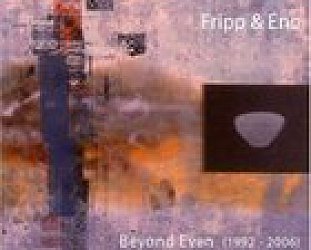
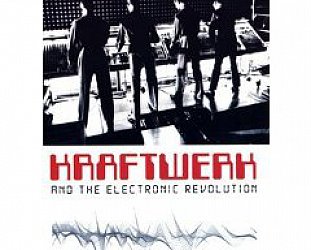
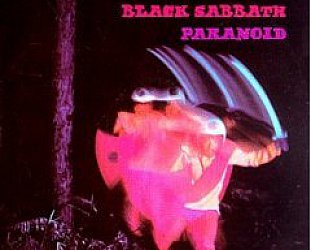


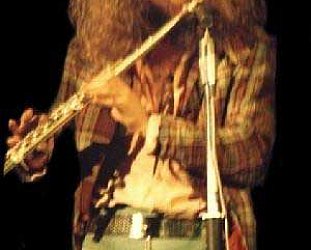
Jeremy - May 12, 2011
Graham, are you trying to recalibrate my musical upbringing? First I had to adjust to the idea that Kraftwerk might have some merit - after 30 years of critical damnation. Then it was the (previously embarrassing) Travelling Wilburys, and now you're asking me to reconsider JM Jarre (previously a great example that the french can't do rock). Next you'll be telling me that Tubular Bells was seminal, or Alan Parsons Project was visionary (though if you do, at least I'll be able to stop hiding those albums!).
SaveWhat's next? Anyone for Rush?
Jeremy - May 12, 2011
PS to the below...
SaveNot saying you're wrong, but you're messing with my critical compass!
post a comment